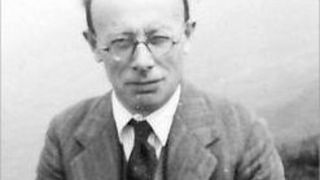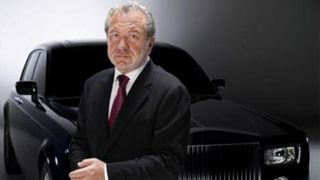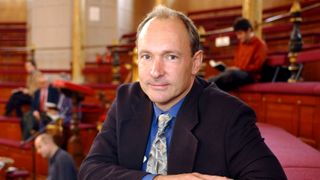10 Britons who shaped the history of computing
From Babbage and Wilson to World War Two's unsung heroes
Colossus was instrumental in reducing the time needed to decipher second generation (Lorenz) encoding devices used by the Germans from weeks to hours, which is said to have greatly helped allied forces during the D Day landings.
8. Max Newman

A Cambridge university lecturer and mathematician drafted in as a cryptologist at Bletchley Park during the Second World War, Max Newman was involved in designing and building electronic machines that eventually led to the creation of 'Colossus'.
One of these was the 'Heath Robinson', an evolved version of a machine used to intercept messages, known as 'Tunny'. While quicker in its attempts to break codes, the machine was held back by its optical tape readers used to intercept and decrypt messages.
Newman was put in touch with Tommy Flowers and provided the Colossus blueprints for his team to build. Rather than following this specifically, however, Flowers took the machine to the next level by building it with valves, which formed the basis for its effectiveness.
Newman also mentored Alan Turing during World War II. In 1935, he gave a lecture that described the problem that led to the Turing machine.
9. Alan Sugar

Consumer electronics giant turned Apprentice overseer, Lord Alan Sugar founded Amstrad, the company that aimed to put computers in as many living rooms as possible during the 1980s.
Sugar had a breakthrough with the launch of the Amstrad PCW 8256 PC, an all-in-one model that featured a processor, screen, keyboard and printer. The PC's wide ranging appeal found it favour with students and businesses alike and helped lift the company's worth to a massive £1.5 billion on the FTSE 100 index.
Are you a pro? Subscribe to our newsletter
Sign up to the TechRadar Pro newsletter to get all the top news, opinion, features and guidance your business needs to succeed!
The company hit troubled times in the 90s, however, as the hardware of its newer models was often criticised and it ran into stiffer competition within the industry.
10. Tim Berners-Lee

Computer scientist Tim Berners-Lee is the inventor of the World Wide Web and one of the greatest tech pioneers of all. He proposed his hypertext project in 1989, and between 1991-93 built on it with feedback from users across the internet, developing initial specifications of HTTP (hypertext transfer protocol), URL (uniform resource locator), and HTML (hypertext mark-up language). They were refined as understanding of his invention spread around the globe.
Of course, we now know that through computers (and now mobile devices), the web is one of, if not the most powerful in modern times. This was only possible because Berners-Lee made it 'open source' - free to all - allowing it to spread without restrictions.










